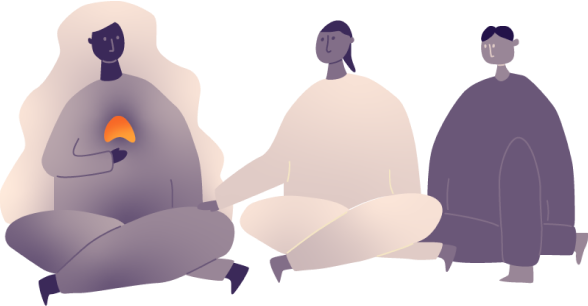Awhi is still in development, we'd love your feedback and suggestions. Let us know.
My child is going through puberty - What is appropriate for their intimate care plan?
Some disabled children will require assistance with intimate care from childhood through to adulthood. This can become problematic as they enter puberty – causing potential distress and embarrassment.
As a parent this can be upsetting for you too and it is normal to feel a range of emotions from frustration to sadness and even anger. It is not easy knowing that your child will never be as independent as you, and they, would wish for themselves.
The guiding principle to help them through what can be a difficult time is to allow your child as much autonomy and choice over their care, as possible.
They should make the decisions about who carries out their care and how it should be done, within reason.
If your child is non-speaking, they may express their preferences through communication aides or through their behaviour. Respect their wishes, or find a compromise, if necessary.
It may be that as their parent you have always provided your child’s intimate care yourself – but as they mature, your child may prefer others to carry out these tasks. Alternatively, _you _may be the only person they trust and feel comfortable with to provide intimate care.
Be patient as they learn how to do the tasks that come with puberty– read books together that explain what happens when they get their period or have a wet dream. Or watch DVDs. I If you are using visual schedules, introduce new symbols as needed. For example, if your child will need to change their tampon or pad at school, having an image of a sanitary pad, reminding them to change it at regular intervals. Social stories can also be useful to explain and reinforce new routines.
When sorting out these issues, it’s a good idea to develop an intimate care plan, if you don’t already have one, or to update your existing one. It should detail your child’s preferences - who they are comfortable with providing intimate care, what kind of interaction is or isn’t okay, what may trigger a negative reaction. Document what your child can do themselves, and what they are learning to do. Clarify the best means of communication – for some children this may include visual diaries, social stories or sign language.
The more your child has a sense of control over their body and their own privacy, the more comfortable and empowered they are likely to feel.
If they require intimate care at school, make sure their carer at school is familiar with the intimate care plan and honours your child’s preferences and requirements.
Having multiple intimate care providers in different environments is one known risk factor leading to physical or sexual abuse for disabled people. **
Beyond the obvious steps of thoroughly vetting all intimate care providers and limiting their number and places where it occurs, there are other things you can do.**
- Good sex and relationships education is important as it clarifies the difference between sexual touch and that required by intimate care.
- Make sure your child knows what constitutes abuse, and of their right to complain. Also make sure they know how to say ‘no’, or to communicate their non-consent.
- It can be difficult for disabled children to be listened to and believed. Always listen to their concerns and pay attention to any signs of distress – changes in their behaviour, moodiness, or acting out sexually. There can be other reasons for all these things but investigate anyway.
- Make sure carers are thoroughly familiar with your child’s intimate care plan to ensure consistent, appropriate care.
- Check in with your child regularly to see if they are comfortable with their intimate care and that it is being carried out in a respectful and safe way. You may need to update your child’s intimate care plan as they grow and develop.
Things for parents to remember:
- Be honest with yourself if you no longer feel comfortable providing your child with intimate care. This can be particularly difficult when your child has an adult’s body, but without being mature in other ways. Recognise they are no longer a child and both you and they may benefit from an honest conversation about getting someone else to provide personal care.
- Recognise that your teenage child may be frustrated at requiring your intimate care, at a time when they are programmed to distance themselves from you.
- **Make sure your child has private time and respect their efforts to manage more of their own personal care. **
- It is quite common and normal for young men to get erections during intimate care. **Don’t panic – at this age almost anything can trigger an erection. **But see if there is anything you can do to change your routine that will make an erection less likely – can they do some aspect of the task themselves? Importantly, try to manage any awkward feelings you may have, so that your child doesn’t feel shamed or embarrassed. Let them know it’s not a big deal.
- It can feel hard to let go, but by allowing your child to have greater physical and emotional distance from you may be the thing that allows you both to feel okay.
For more on puberty, the following articles are available on Awhi Nga Matua.
· How can I support my teenage disabled/autistic child explore their sexuality?
· How can I help my disabled/autistic child navigate the emotional storms of puberty?
· _ My teenager wants to have a boyfriend/girlfriend, but I think they might get hurt - what can I do?_
· Help! My teenager is using pornography and I don’t know what to do
· _ Help! How can I teach my disabled/autistic teenager that good hygiene is important?_
· How can I help my disabled/autistic child manage their periods?
· Help! How can I teach my child what's okay and what's not, when it comes to masturbation?
· How can I help my disabled child with their body image?
You might also find the resources below useful, which includes books from the IHC Library as well helpful website and helpline numbers. Or contact the IHC library direct to have a chat about what you need on 0800 442 442 or email: Librarian@ihc.org.nz.
Kids’ Books from the IHC Library
· Things Ellie Likes – A book about sexuality and masturbation for girls and young women with autism and related conditions - Kate E. Reynolds, illustrated by Jonathan Powell
· _Things Tom Likes _– A book about sexuality and masturbation for boys and young men with autism and related conditions - Kate E. Reynolds, illustrated by Jonathan Powell
· Growing Up Great! The Ultimate Puberty Book for Boys – Scott Todnem
· The Growing Up Guide for Girls – What Girls on the Autism Spectrum Need to know! - Davida Hartman, illustrated by Margaret Anne Suggs
· Secret Boys' business – second edition - Rose Stewart, Fay Angelo, Heather Anderson, illustrated by Jeff Taylor
· _More Secret Girls’ Business _- Rose Stewart, Fay Angelo, Heather Anderson, illustrated by Jeff Taylor
· _Special Girls’ Business _– This book has been written for girls with special needs - Rose Stewart, Fay Angelo, Heather Anderson, illustrated by Julie Davey
· Special Boys’ Business – This book has been written for boys with special needs - Rose Stewart, Fay Angelo, Heather Anderson, illustrated by Jeff Taylor
· _Puberty and Special Girls – This book has been written for girls with special needs - _Rose Stewart, Fay Angelo, Heather Anderson, illustrated by Jeff Taylor
· The Autism-Friendly Guide to Periods – Robyn Steward
· Boyfriends + Girlfriends – A guide to dating for people with disabilities – Terri Couwenhoven
· Leroy Learns about the Big 'P'** **- John Hibbs
· _The Boys’ Guide to Growing Up _– Choices and Changes during Puberty – Terri Couwenhoven
· All about Growing Up – Family Planning NZ
· _The Girls’ Guide to Growing Up _– Choices and Changes in the Tween Years – Terri Couwenhoven
Books for Adults from the IHC Library
· When Young People with Intellectual Disabilities and Autism Hit Puberty – A Parents' Q&A Guide to Health, Sexuality and Relationships – Freddy Jackson Brown, Sarah Brown
· _Safety and Consent for Kids and Teens with Autism or Special Needs _– A Parents’ Guide – Debra S. Jacobs
· Sexuality – Your Sons and Daughters with Intellectual Disabilities – Karin Melberg Schwier, Dave Hingsburger
· The Facts of Life and More – Sexuality and Intimacy for People with Intellectual Disabilities – Leslie Walker-Hirsch
· _Masturbation, Autism and Learning Disabilities – A Guide for Parents and Professionals _– Mel Gadd
· Sex and Relationships Education for Young People and Adults with Intellectual disabilities and Autism -Dr Kelly Asagba, Professor Jan Burns, Dr Sophie Doswell
· Hygiene and Related Behaviours for Children and Adolescents with Autism Spectrum and related Disorders - Kelly Mahlere
· Relationship Building and Sexual Awareness for Kids with Autism – Susan Heighway, Susan Kidd Webster
· Sexuality and Learning Disabilities – A Handbook - edited by Claire Bates
· Sexuality and Intellectual disabilities – A guide for Professionals – Andrew Maxwell Triska
· Let's Talk about Sex - Dr Sarah Ashworth, Dr Hannah Carton
· Intellectual disability and the right to a sexual life – A Continuation of the Autonomy/Paternalism Debate - Simon Foley
** **
DVDs from the IHC Library (also available for online streaming)
· Tara Grows Up – A guide to periods and puberty for young women with intellectual disabilities - IHC
· Billy Grows Up – A guide to puberty for boys and young men with intellectual disabilities -IHC
** **
Helpful websites:
· Body Image Movement: www.bodyimagemovement.com
· KidsHealth: www.kidshealth.org.nz/sexual-behaviour-children-young-people
· Rainbow Youth: www.ry.org.nz
· Healthify He Puna Waiora: www.healthify.nz/health-a-z/c/consent/
· Nest Consulting: www.nestconsulting.nz/healthy-relationships/student-qa/
· All is for All: www.allisforall.com
Anxiety NZ: www.anxiety.org.nz
· Skylight: www.skylight.org.nz
· Depression NZ: www.depression.org.nz
Helplines:
Anxiety New Zealand: 0800 269 4389 (0800 ANXIETY)
1737: Free call or text 1737 to talk to a trained counsellor
Depression.org.nz: 0800 111 757 or text 4202
Kidsline (for people up to 18 years): 0800 543 754
Whats Up (for 5 to 18-year-olds): 0800 942 8787
thelowdown.co.nz , Web chat, email chat or free text 5626
Youthline: 0800 376 633, free text 234, email talk@youthline.co.nz
Lifeline: 0800 543 354
Samaritans: 0800 726 666
Suicide Crisis helpline: 0508 828 865 (0508 TAUTOKO)
Resources
When young people with intellectual disabilities and autism hit puberty :
When young people with intellectual...
"Written for parents and carers of young people with an...
"Written for parents and...
When young people with intellectual disabilities and autism hit puberty :
When young people with intellectual...
"Written for parents and carers of young people with an...
"Written for parents and...
Safety and Consent for Kids and Teens with Autism or Special Needs :
Safety and Consent for Kids and Teens with...
"The developmental challenges of children with special needs means...
"The developmental...
Safety and consent for kids and teens with autism or special needs :
Safety and consent for kids and teens with...
"The developmental challenges of children with special needs means...
"The developmental...
Sexuality :
Sexuality :
Parents describe the joy and challenges of raising children with an...
Parents describe the joy...
The facts of life ...and more :
The facts of life ...and more :
Gives social workers, teachers, and direct support professionals...
Gives social workers,...
Masturbation, autism and learning disabilities /
Masturbation, autism and learning...
"Intimate self-touch and masturbation can pose many difficulties...
"Intimate self-touch and...
Masturbation, Autism and Learning Disabilities :
Masturbation, Autism and Learning...
"Intimate self-touch and masturbation can pose many difficulties...
"Intimate self-touch and...
Sex and relationships education for young people and adults with intellectual disabilities and autism /
Sex and relationships education for young...
"[This book] provides practical guidance for professionals working...
"[This book] provides...
Hygiene and related behaviors for children and adolescents with autism spectrum and related disorders :
Hygiene and related behaviors for children...
"This book will be very helpful to many ASD parents who need a...
"This book will be very...
Relationship building and sexual awareness for kids with autism :
Relationship building and sexual awareness...
"STARS 2 is an adapted version of the original STARS guidebook that...
"STARS 2 is an adapted...
Sexuality and learning disabilities :
Sexuality and learning disabilities :
"This brand-new edition of our best-selling handbook, brings the...
"This brand-new edition of...
Sexuality and intellectual disabilities :
Sexuality and intellectual disabilities :
"This book provides a concise overview of sexuality and gender...
"This book provides a...
Let's talk about sex /
Let's talk about sex /
"Let's Talk About Sex is a sexual health education programme manual...
"Let's Talk About Sex is a...
Intellectual disability and the right to a sexual life :
Intellectual disability and the right to a...
"One of the perennial political/philosophical questions concerns...
"One of the perennial...
Tara grows up :
Tara grows up :
A short film about puberty designed to be watched by girls and...
A short film about puberty...
Billy grows up :
Billy grows up :
"Billy Grows Up" is a short film about puberty designed to be...
"Billy Grows Up" is a short...
Autism friendly periods
Autism friendly periods
Website of Robyn Steward author of "The autism friendly guide to...
Website of Robyn Steward...
Modibodi Period Panties
Modibodi Period Panties
NZ website of the Australian company that sells absorbent underwear...
NZ website of the...
AWWA Period Underwear
AWWA Period Underwear
Commercial website of the New Zealand company that sells underwear,...
Commercial website of the...
Body Image Movement
Body Image Movement
Website of the Body Image Movement. The site includes background...
Website of the Body Image...
KidsHealth :
KidsHealth :
New Zealand website that gives a brief guide to parents on the...
New Zealand website that...
Rainbow Youth
Rainbow Youth
New Zealand advocacy organisation. From the website - "We work...
New Zealand advocacy...
Healthify He Puna Waiora.
Healthify He Puna Waiora.
The Healthify website, formerly Health Navigator provides one place...
The Healthify website,...
Nest Consulting
Nest Consulting
New Zealand website. This link is to student question and answers...
New Zealand website. This...
Anxiety NZ :
Anxiety NZ :
"Anxiety New Zealand Trust supports people living with anxiety and...
"Anxiety New Zealand Trust...
Skylight Trust :
Skylight Trust :
Skylight Trust supports people of all ages throughout New Zealand...
Skylight Trust supports...
Depression NZ
Depression NZ
"This website helps New Zealanders recognise and understand...
"This website helps New...

Resources for kids
Things Ellie likes :
Things Ellie likes :
"A simple picture book to teach girls and young women with autism...
"A simple picture book to...
Things Ellie likes :
Things Ellie likes :
"A simple picture book to teach girls and young women with autism...
"A simple picture book to...
Things Tom likes :
Things Tom likes :
"A simple picture book to teach boys and young men with autism or...
"A simple picture book to...
Things Tom likes :
Things Tom likes :
"A simple picture book to teach boys and young men with autism or...
"A simple picture book to...
Growing up great! :
Growing up great! :
"Growing Up Great is a body-positive guide to getting through...
"Growing Up Great is a...
The growing up guide for girls :
The growing up guide for girls :
"The Growing Up Guide for Girls is a one-stop guide for young girls...
"The Growing Up Guide for...
Secret boys' business /
Secret boys' business /
Secret boys' business assists boys to understand the changes that...
Secret boys' business...
More secret girls' business
More secret girls' business
This is a companion volume to "Secret Girls Business". In addition...
This is a companion volume...
Special girls' business
Special girls' business
Takes a girl and her carer step by step through the process of...
Takes a girl and her carer...
Special boys' business
Special boys' business
This book has been written for boys with special needs. It supports...
This book has been written...
Puberty and special girls
Puberty and special girls
"Provides practical information about growing up and will help...
"Provides practical...
The autism-friendly guide to periods /
The autism-friendly guide to periods /
Written by autistic author Robyn Steward, this is a detailed guide...
Written by autistic author...
The autism-friendly guide to periods /
The autism-friendly guide to periods /
Written by autistic author Robyn Steward, this is a detailed guide...
Written by autistic author...
Boyfriends & girlfriends :
Boyfriends & girlfriends :
"Boyfriends & Girlfriends is for parents and professionals caring...
"Boyfriends & Girlfriends...
Leroy learns about the big P :
Leroy learns about the big P :
"This unique young person's book has been developed by a very...
"This unique young person's...
The boys' guide to growing up :
The boys' guide to growing up :
"As a sexuality educator, I applaud Terri for tackling this crucial...
"As a sexuality educator, I...
All about growing up
All about growing up
"This workbook has been designed for young people living with mild...
"This workbook has been...
The girls' guide to growing up :
The girls' guide to growing up :
"Puberty is a challenging time for all young adults. Now girls with...
"Puberty is a challenging...
.jpg&w=128&q=75)
Meryl Richards
I’m Meryl Richards. What a pleasure it’s been to join the Awhi team. I get to spend my days researching information that supports me as a parent, and sometimes challenges me to rethink what I thought I knew. My hope is that it will be useful to you too. I live in Kapiti with my partner and two teenage boys, and spend as much time as possible in the surrounding bush and at the beach.
Was this resource helpful to you?


The Awhi Ngā Mātua team would like to thank Takai, the IHC Foundation and the Dines Family Charitable Trust for their generous contributions to our work. A huge thank you also to the IHC Programmes team, in particular the IHC Library which has worked so hard to make their remarkable collection available to us.




.jpg&w=3840&q=75)




